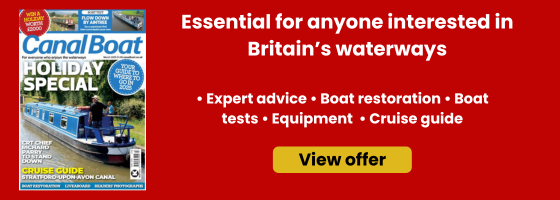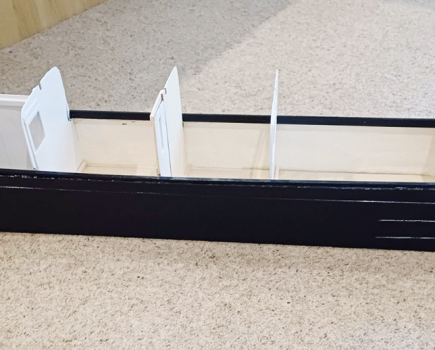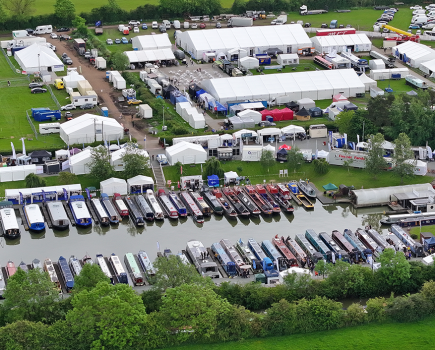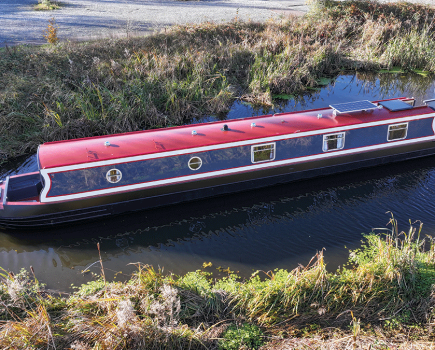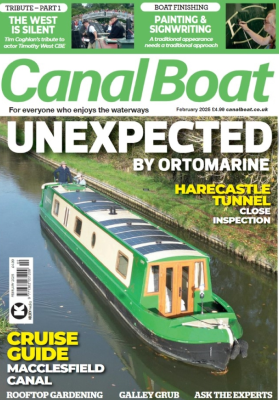Steve is ‘incensed at boaters bringing their mean-minded sense of entitlement from the land to the water and in the process destroying the very values that we cherish most on the canals’
An open letter written to the canal community on a canal Facebook site left me incensed this month. Incensed at boaters who are bringing their mean-minded sense of entitlement from the land to the water and in the process destroying the very values that we cherish most on the canals.
The letter was from a woman called Rebecca Harrison who was recently on holiday on the Kennet and Avon with her husband Uan. She’s a social worker and her husband a teaching assistant, and they have three children under the age of 12, two of whom have special needs. Once a year they escape the kids and treat themselves to a week on the waterways, part of a long-term dream they nurse to maybe have a boat of their own one day. She wrote the letter on the fourth day of the holiday, ‘one of the worst days we have ever had on the canal.’
Up until then the trip had been everything they had come to expect from holidays they’d had on the cut before. They were at the halfway stage out of Devizes, and having turned near Great Bedwyn they fell into conversation with a woman and her two kids walking on the towpath who helped them do a lock and who they subsequently invited to join them on a short trip. However, before they could get started they were set upon – no other way of describing it – by another boater complaining that a paddle had been left open. Rebecca apologised and jumped off the boat to close it – which should have been an end of the matter except for incomprehensible reasons known best to herself, the complaining boater continued to protest and when Rebecca and Uan attempted to explain how what was after all only a minor mistake had come about, she accused them of being ‘arrogant, rude holidaymakers who didn’t understand the canal.’
This unpleasant incident was quickly followed by an encounter with a volunteer who appeared to close an open gate on their boat, and afterwards, they thought, abandoned them in favour of someone else who was on his own boat rather than a hire boat. One further incident with a widebeam boat followed this, after a misunderstanding about which side to pass – and who hasn’t had a misunderstanding with a widebeam about which side to pass? The steerer of the widebeam at least kept his mouth shut, though he tutted and grumbled, and otherwise ignored them, making it perfectly clear by his behaviour that they were hire boaters and he wasn’t, being much higher up some social scale of his own invention.
If this wasn’t bad enough for one day, they got confronted later for not leaving a gate open for an approaching boat. Now this is the sort of minor irritant that happens to any skipper on the water regularly, and one you learn to shrug off with a joke and a raised eyebrow, and sometimes a sharp word if you feel a crew hasn’t been as observant as it should have been. But perhaps because this was late in the day, with everyone tired and on a short fuse, this spat seems to have turned into a fully-fledged altercation, complete with raised voices, tempers lost and degenerating language.
Now, some may say the Harrison’s are oversensitive and that the cut’s a rough and tumble environment where boats get bumped and egos bruised. And to some extent they’d be right: the pair was left close to tears after the day they’d had, wondering whether the canals were for them. You wonder could they genuinely have believed – in their heart of hearts – that a volunteer was ignoring them because they were hirers?
Even so, both of them are in demanding jobs, with a family which probably requires more of them than most. They’re hardly snowflakes. And the fact remains, regardless of the truth of events they experienced, the Harrisons felt like they were being treated differently because they were on a hire boat. From my experience, they’re probably not wrong either. I’ve had many conversations with hirers over the last few years on just this topic, and almost without exception they all say they’re made to feel like second-class boaters. Some hirers who’ve been doing it for decades report an increased and palpable resentment against them.
Now let me spell this out for fear there should be any ambiguity. There is NO place for rudeness on the canal, there is NO place for canal rage, NO place for bad language. All this we would agree on. But there should be NO place for entitlement either. It doesn’t matter how big your boat is, how much it cost you, how many decades you’ve been on the cut and how much more you know about canals than anyone else. Once you are afloat you are part of an egalitarian community in which, whoever you are, you have a right to the same treatment and respect as anyone else. And this means you have the responsibility to treat them as you’d wish to be treated.
__________
Follow me on Twitter @Cutdreamer
Award-winning current affairs TV producer, journalist and author Steve Haywood who has been a boat owner for more than 40 years


